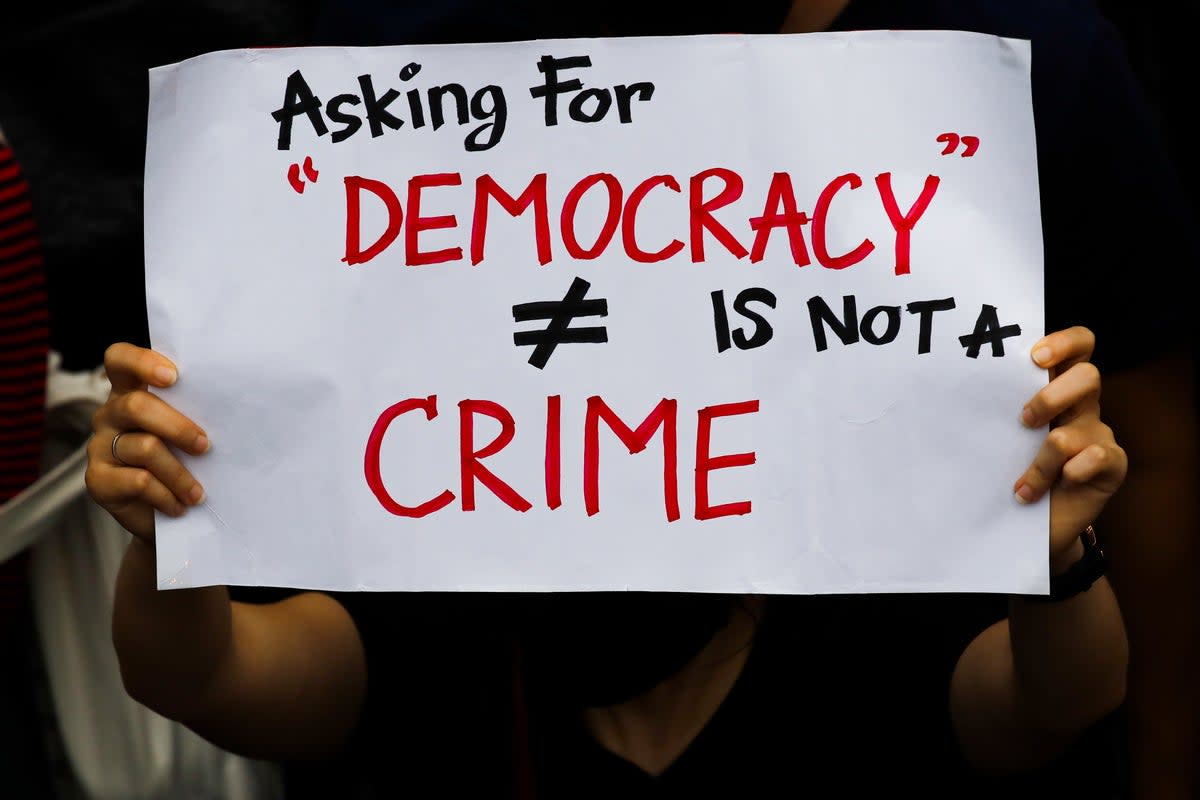Thai teen detained for ‘insulting’ monarchy released after 50 days

A 15-year-old girl who was detained for allegedly insulting the monarchy in Thailand has been finally released after 50 days.
Thanalop “Yok” Phalanchai was arrested on 28 March for allegedly violating Thailand’s lese-majeste law when she criticised the monarchy during an October 2022 rally in Bangkok.
She walked out of the Ban Pranee juvenile vocational training centre for Girls in Nakhon Pathom city in central Thailand on Thursday, the Bangkok Post reported.
The central juvenile and family court rejected the police's request to extend Thanalop's detention in order to further investigate the case. The court reportedly said the police had enough material to support their investigation.
Protesters at the October rally in front of the Bangkok City Hall had called for the release of political detainees and for the abolition of royal defamation prosecutions.
Thanalop was detained for allegedly violating Article 112 of Thailand’s criminal code, which is punishable by up to 15 years in prison.
“By arresting a 15-year-old girl, the Thai government is sending the spine-chilling message that even children aren’t safe from being harshly punished for expressing their opinions," Elaine Pearson, Asia director at Human Rights Watch, had earlier said, calling for Thanalop's release.
Thanalop's detention has been one of the most high-profile among the 19 cases that involve people under age 18 charged with lese-majeste (insulting the monarchy). The youngest detainee was a 14-year-old girl from Phitsanulok city, north of Bangkok, who was released on bail this week.
The central juvenile and family court in a statement alleged that Thanalop's mother had failed to appear for her bail.
The Thai Lawyers for Human Rights (TLHR) took issue with the court’s contention that the accused had “rejected justice” when she refused to take part in proceedings, Bangkok Post reported.
“Because Yok rejected only the justice system, she did not reject justice,” it said.
Critics have accused Thailand of increasingly enforcing the lese-majeste law to throttle dissent since the Thai military took power in a 2014 coup.
After almost a three-year hiatus, in November 2020 prime minister Prayut Chan-ocha ordered the authorities to restore lese-majeste prosecutions, ostensibly because of growing criticisms of the monarchy.
At least 242 government critics have been charged for violating the lese majeste law during political protests since 2020, according to TLHR.


